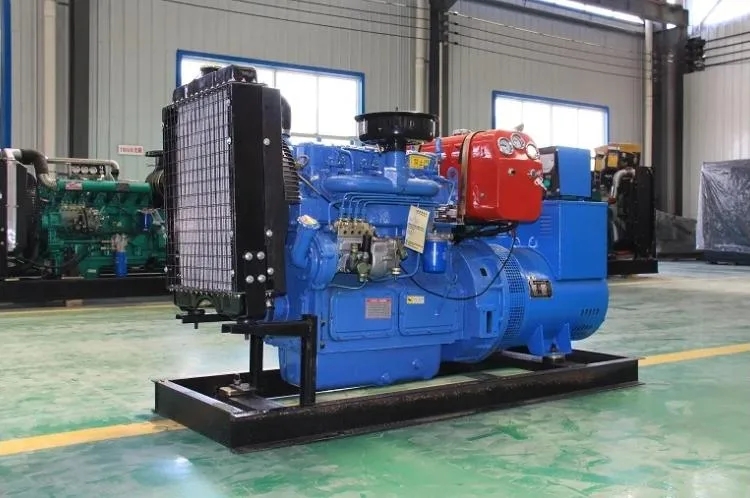Diesel Generator Testing and Certification Ensuring Reliable Power Supply

Introduction
Diesel generators play a crucial role in providing backup power during emergencies or in areas with unreliable electricity supply. To ensure the reliability and performance of these generators, rigorous testing and certification processes are essential. In this article, we will explore the importance of testing and certification for diesel generators, the key parameters that are evaluated during the process, and the various standards and regulations that govern the testing and certification of these critical power sources.
Importance of Testing and Certification for Diesel Generators
Diesel generators are commonly used in a wide range of applications, including hospitals, data centers, industrial facilities, and residential buildings. These generators are relied upon to provide power during blackouts, natural disasters, and other emergencies, making their performance critical for the safety and functionality of the facilities they support. Testing and certification are essential processes that ensure that diesel generators meet specific performance standards and are capable of delivering the required power output when needed.

Testing and certification also help identify potential issues or defects in the generator system before they cause a failure or malfunction. By subjecting diesel generators to various tests and inspections, manufacturers and operators can verify that the equipment is designed and built to withstand the rigors of continuous operation and provide reliable backup power when called upon.
Key Parameters Evaluated During Testing and Certification
During the testing and certification process for diesel generators, several key parameters are evaluated to assess the overall performance and reliability of the equipment. These parameters include:
1. Power Output: The power output of a diesel generator is a critical parameter that determines its capacity to provide electricity during an outage. Testing is conducted to verify that the generator can deliver the specified power output under various load conditions and for the required duration.
2. Voltage Regulation: Voltage regulation refers to the ability of a generator to maintain a stable voltage output within acceptable limits. Testing is performed to ensure that the generator can maintain voltage stability under different load conditions and during transient events.
3. Frequency Regulation: Frequency regulation is another important parameter that measures the ability of a generator to maintain a stable frequency output. Testing is conducted to verify that the generator can maintain the specified frequency within acceptable limits, especially during load changes or starting of heavy equipment.
4. Fuel Efficiency: Fuel efficiency is a crucial factor in the operation of diesel generators, as it directly impacts operating costs and environmental impact. Testing is carried out to evaluate the fuel consumption of the generator under different load conditions and to optimize its performance for maximum efficiency.
5. Emissions Compliance: Diesel generators must comply with strict emissions regulations to minimize their environmental impact. Testing is performed to measure the emissions of pollutants such as particulate matter, nitrogen oxides, and carbon monoxide and to ensure that the generator meets the required emission standards.
6. Noise Levels: Noise pollution is a concern in many applications where diesel generators are used. Testing is conducted to measure the noise levels produced by the generator and to ensure that they are within acceptable limits for the intended environment.
7. Start-Up Time and Reliability: The start-up time and reliability of a diesel generator are crucial factors in emergency situations. Testing is carried out to assess the time taken for the generator to start and reach full power output, as well as its overall reliability in starting under different conditions.
Standards and Regulations Governing Diesel Generator Testing and Certification
The testing and certification of diesel generators are governed by various international standards and regulations that establish the requirements for performance, safety, and environmental compliance. Some of the key standards and regulations that apply to diesel generator testing and certification include:
1. ISO 8528: This standard specifies the requirements for the design, performance, and testing of diesel generator sets. It covers aspects such as power ratings, voltage regulation, frequency control, and emissions compliance.
2. IEC 60034: The International Electrotechnical Commission (IEC) standard 60034 series pertains to the design and performance of rotating electrical machines, including generators. It includes requirements for efficiency, temperature rise, and insulation class.
3. NFPA 110: The National Fire Protection Association (NFPA) standard 110 outlines the requirements for the installation, operation, testing, and maintenance of emergency and standby power systems, including diesel generators. It covers aspects such as fuel storage, testing procedures, and maintenance practices.
4. EPA Tier 4: The U.S. Environmental Protection Agency (EPA) Tier 4 regulations set stringent emission standards for diesel engines, including those used in generators. Compliance with these regulations requires the use of advanced emission control technologies to reduce pollutants such as particulate matter and nitrogen oxides.
5. CE Marking: In the European Union, diesel generators must comply with the requirements of the CE marking directive, which certifies that the equipment meets essential health and safety requirements. https://www.lkpowerplant.com/what-is-75kw-diesel-generator/ with CE marking demonstrates that the generator has undergone testing and certification to ensure its safety and performance.
Conclusion
Testing and certification are essential processes for ensuring the reliability, performance, and safety of diesel generators. By evaluating key parameters such as power output, voltage regulation, fuel efficiency, emissions compliance, and start-up reliability, manufacturers and operators can verify that the generators meet the required standards and specifications. Compliance with international standards and regulations, such as ISO 8528, IEC 60034, NFPA 110, EPA Tier 4, and CE marking, is crucial for demonstrating that diesel generators are built and tested to high-quality standards. In conclusion, the rigorous testing and certification of diesel generators play a vital role in ensuring a reliable power supply during emergencies and critical operations.
